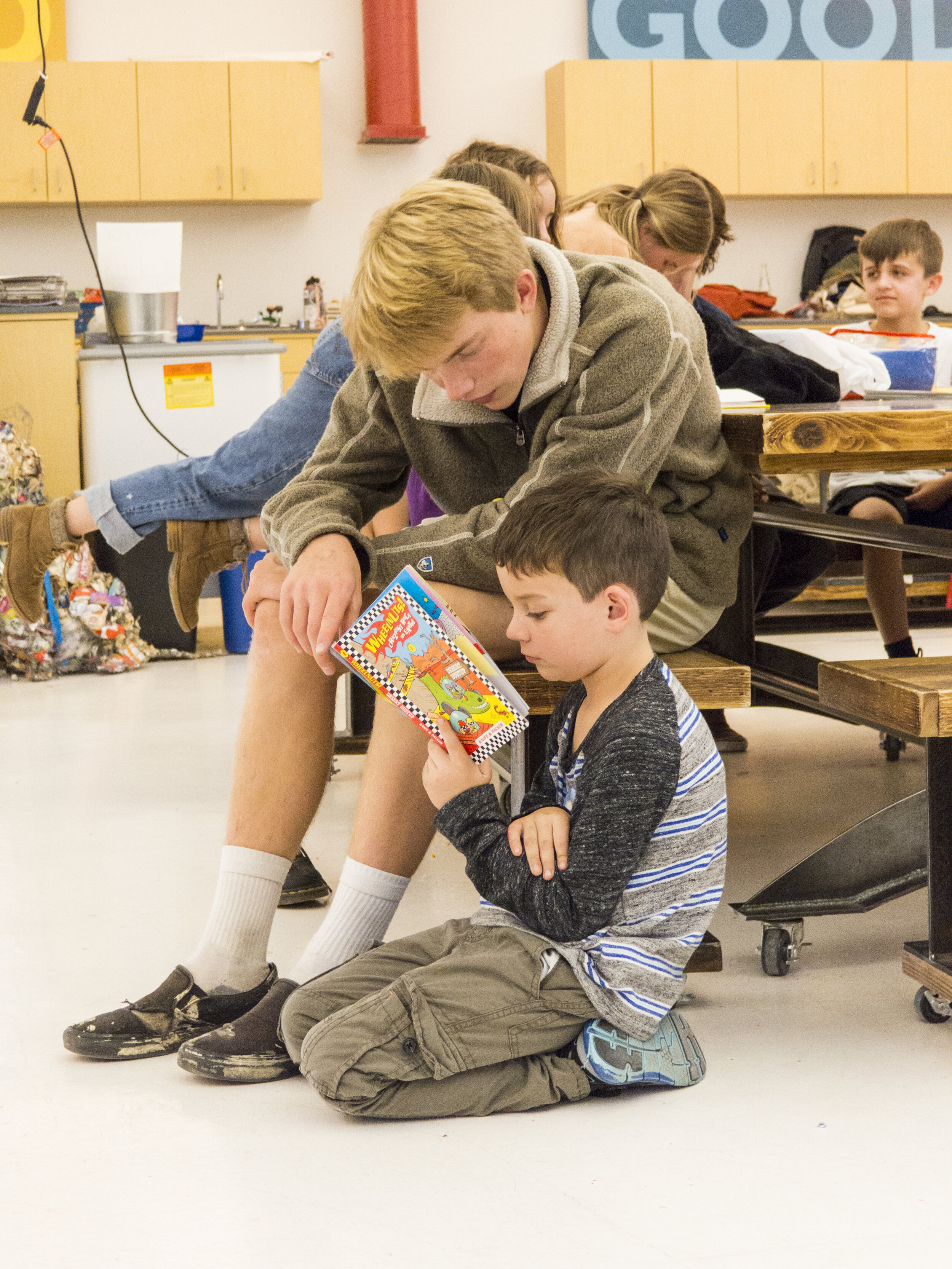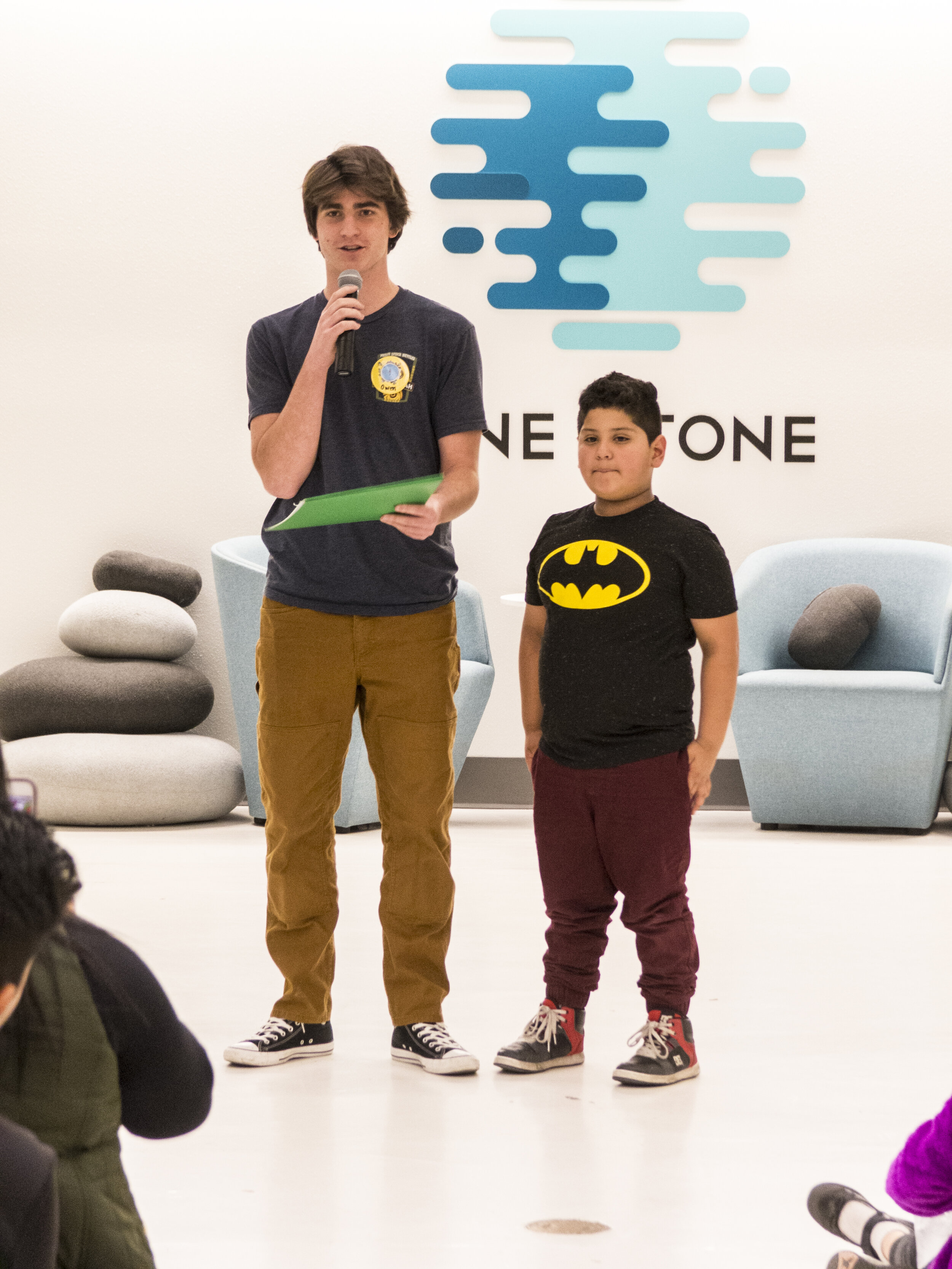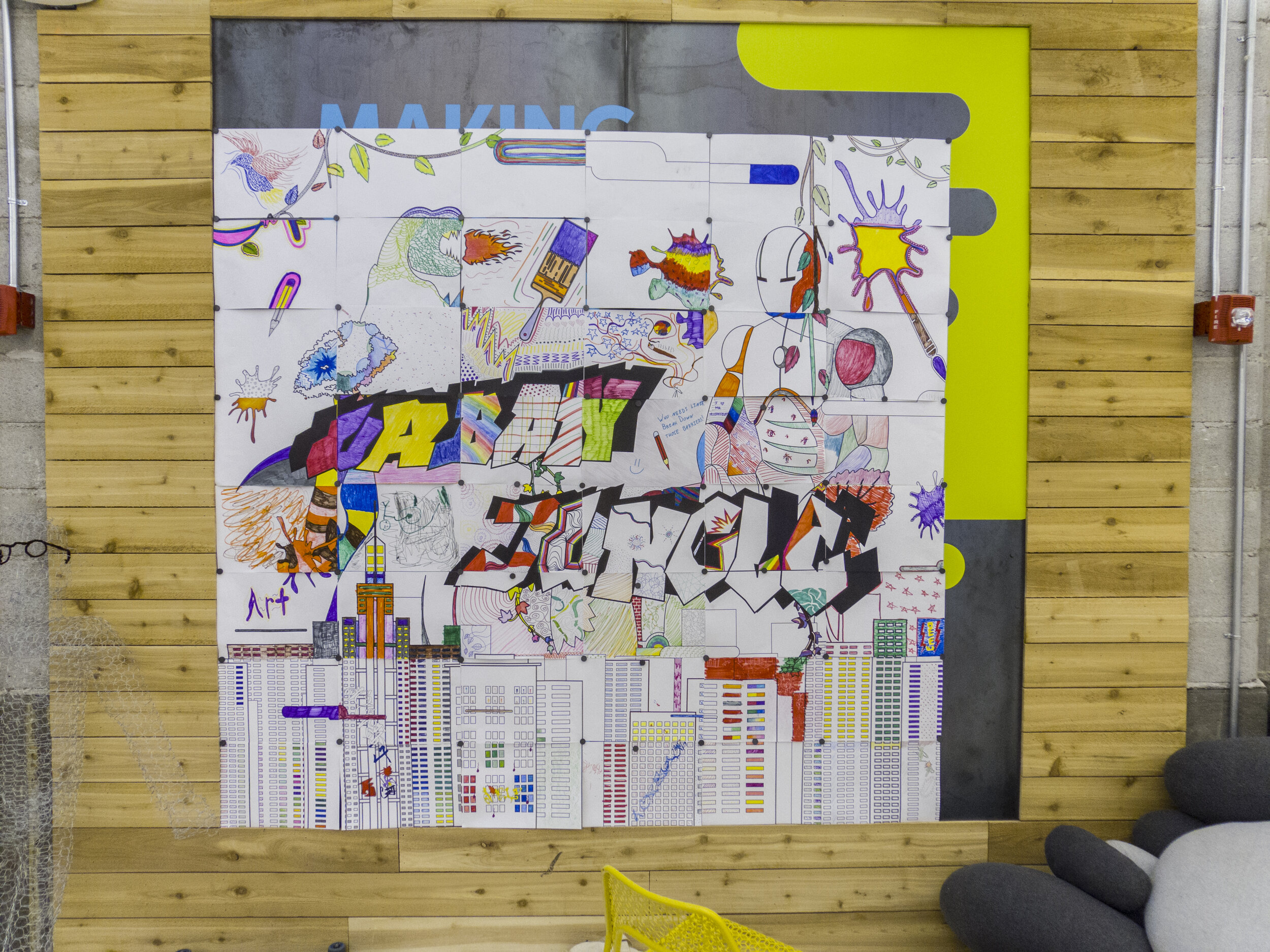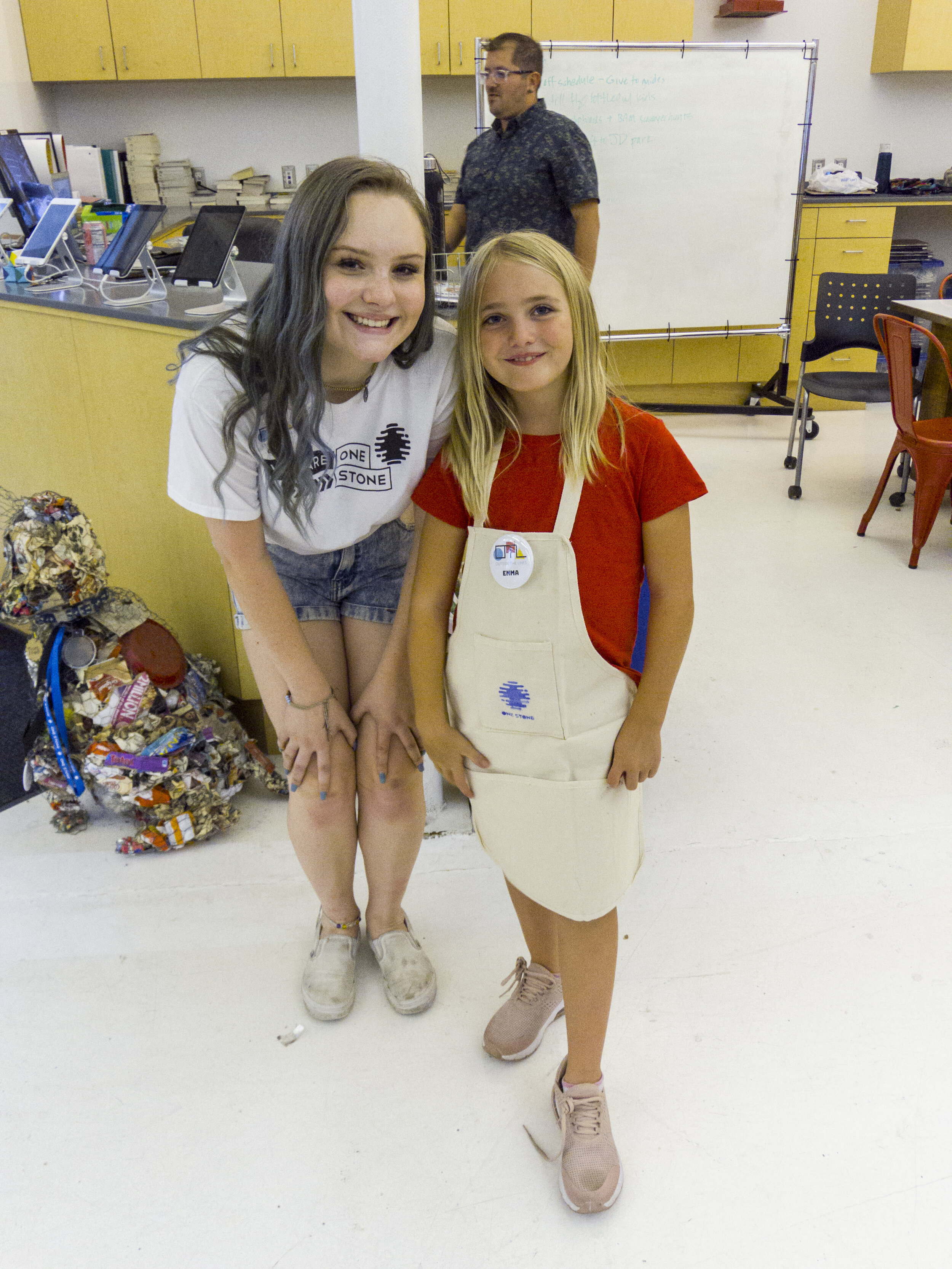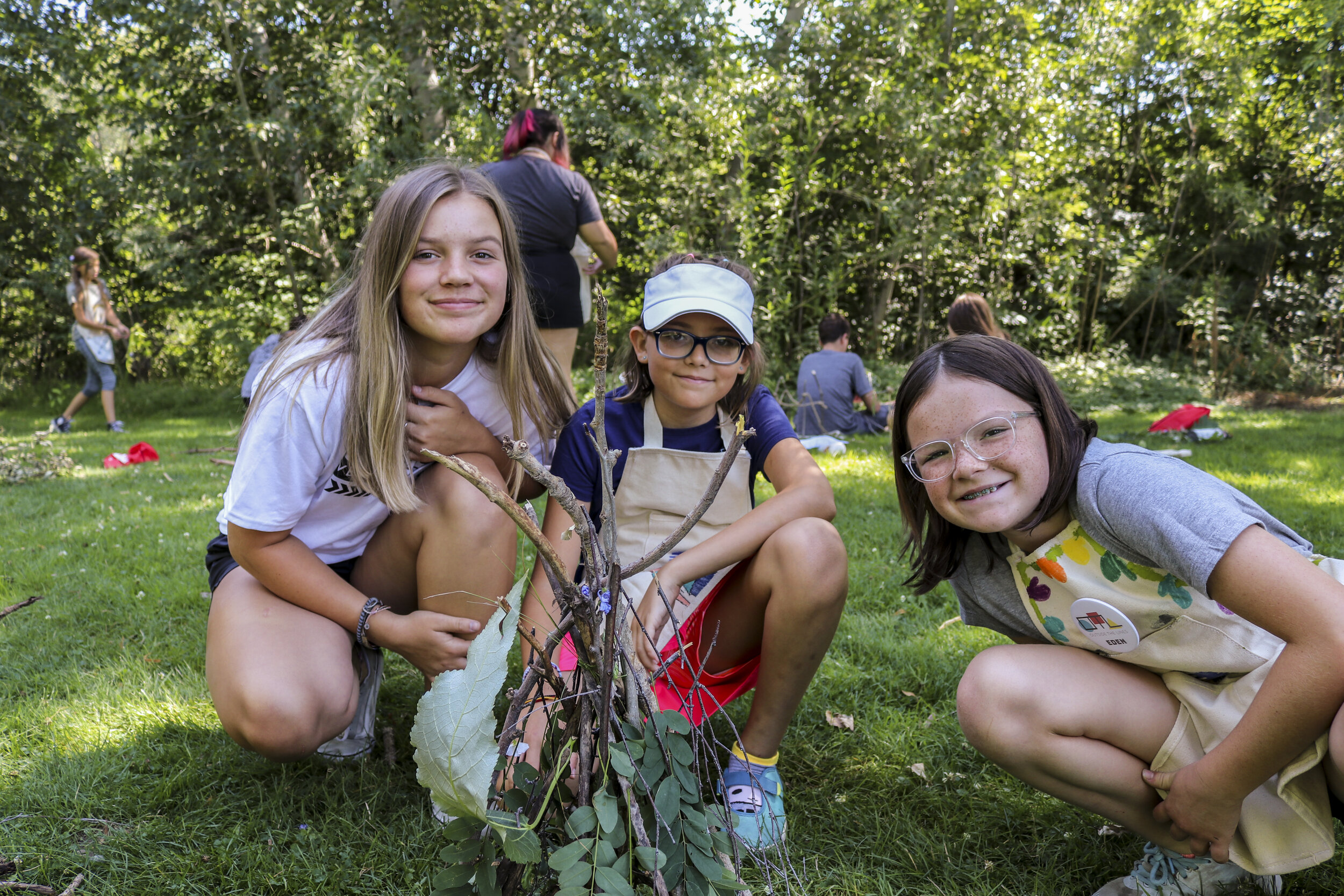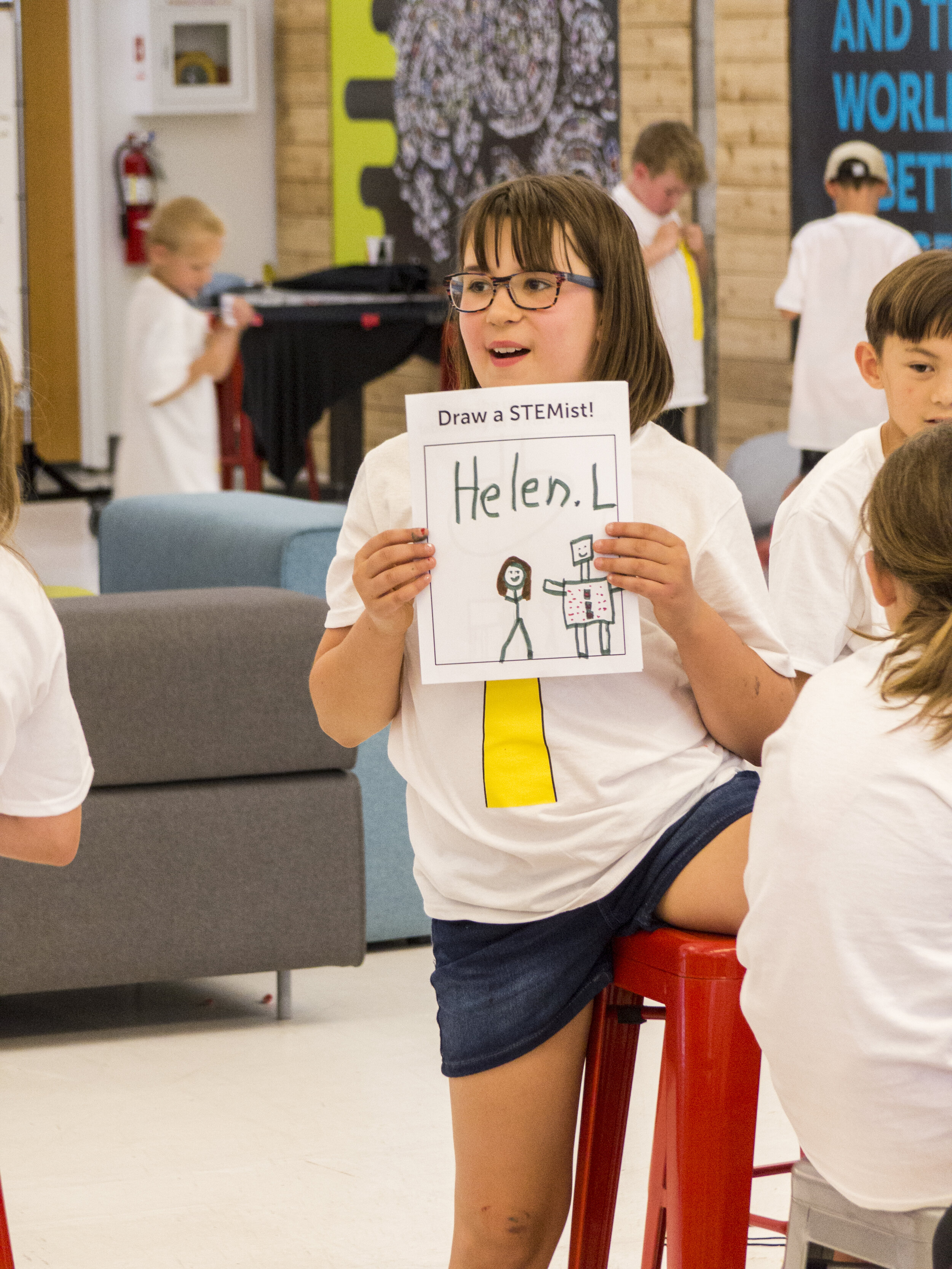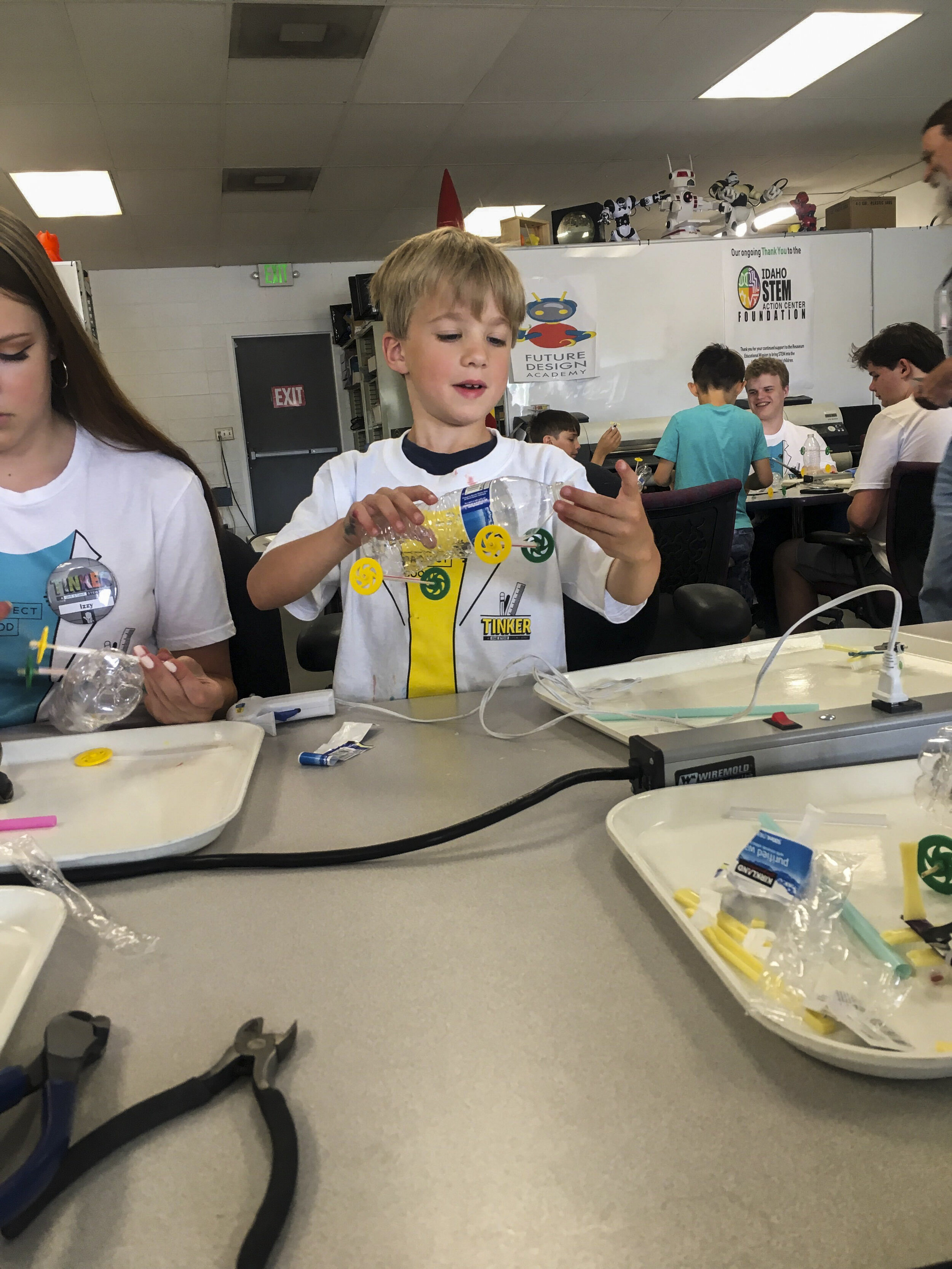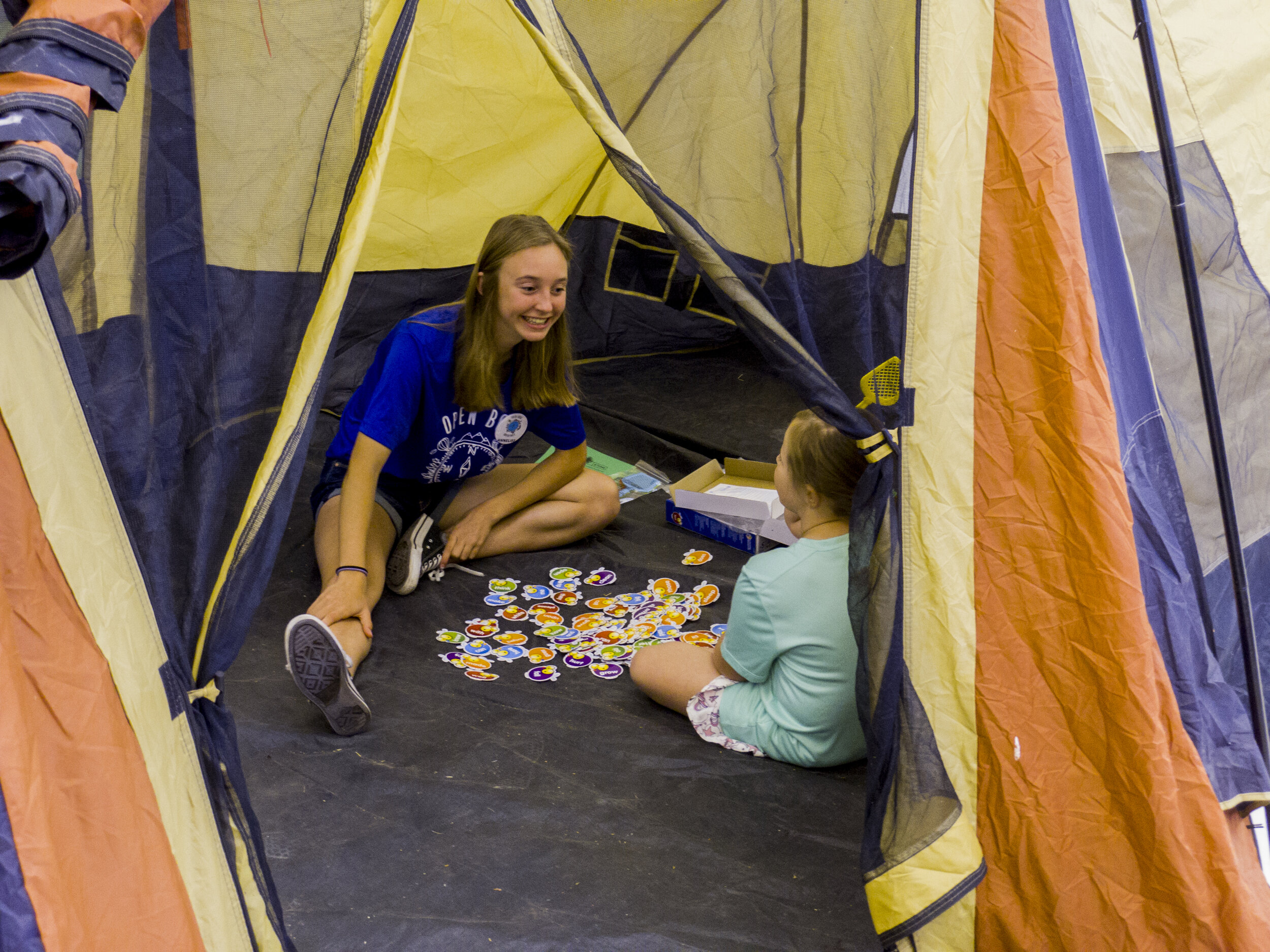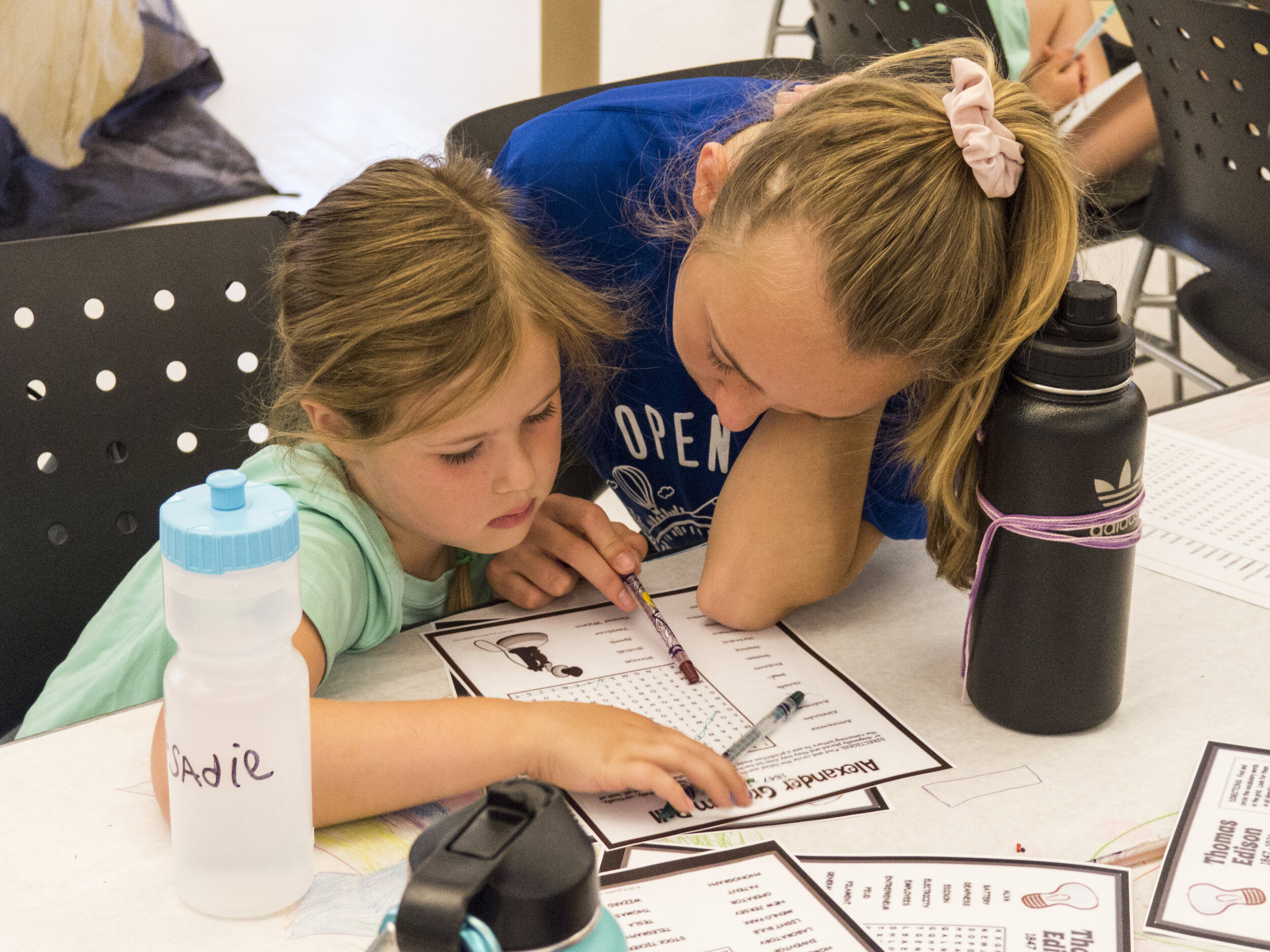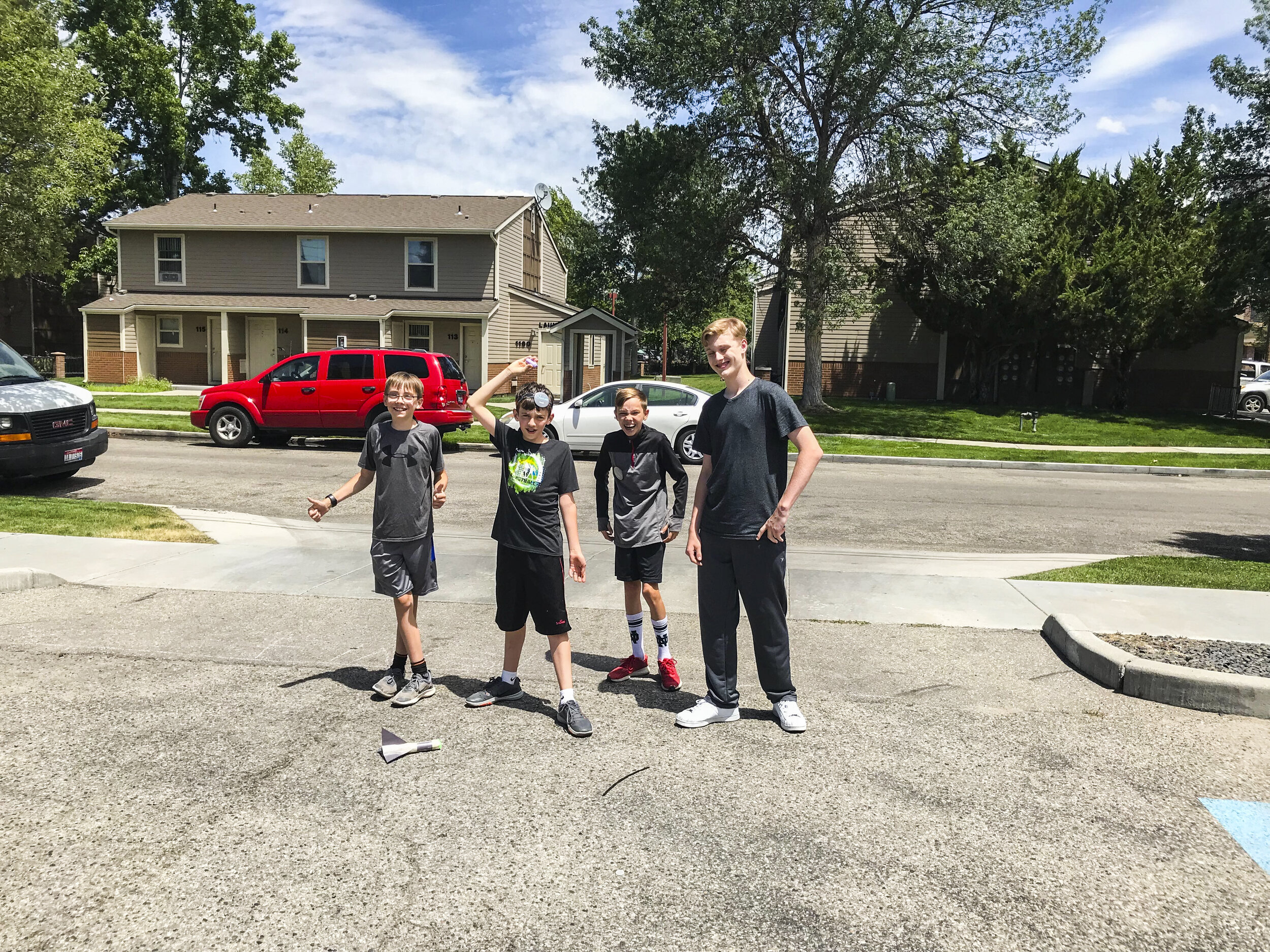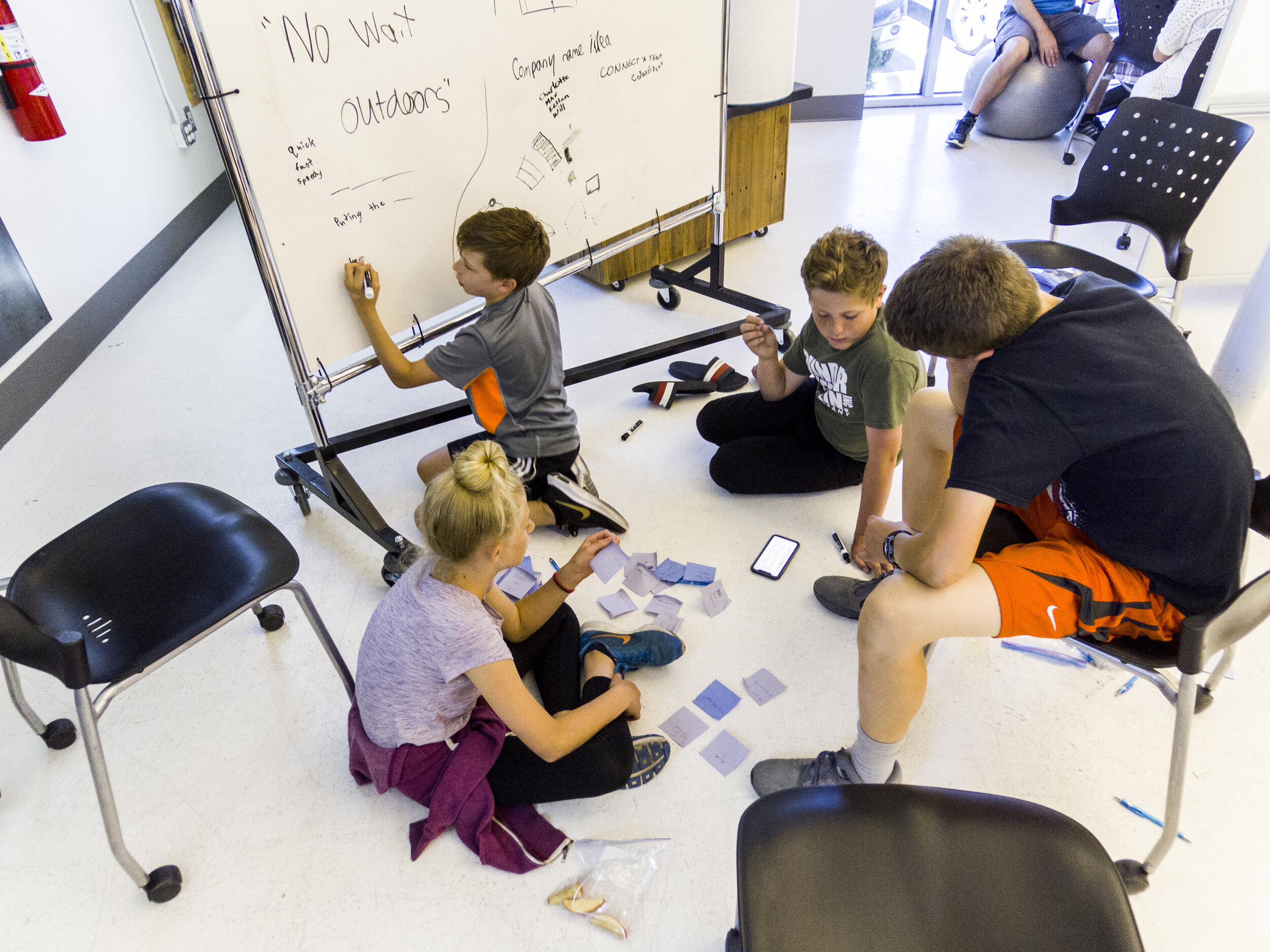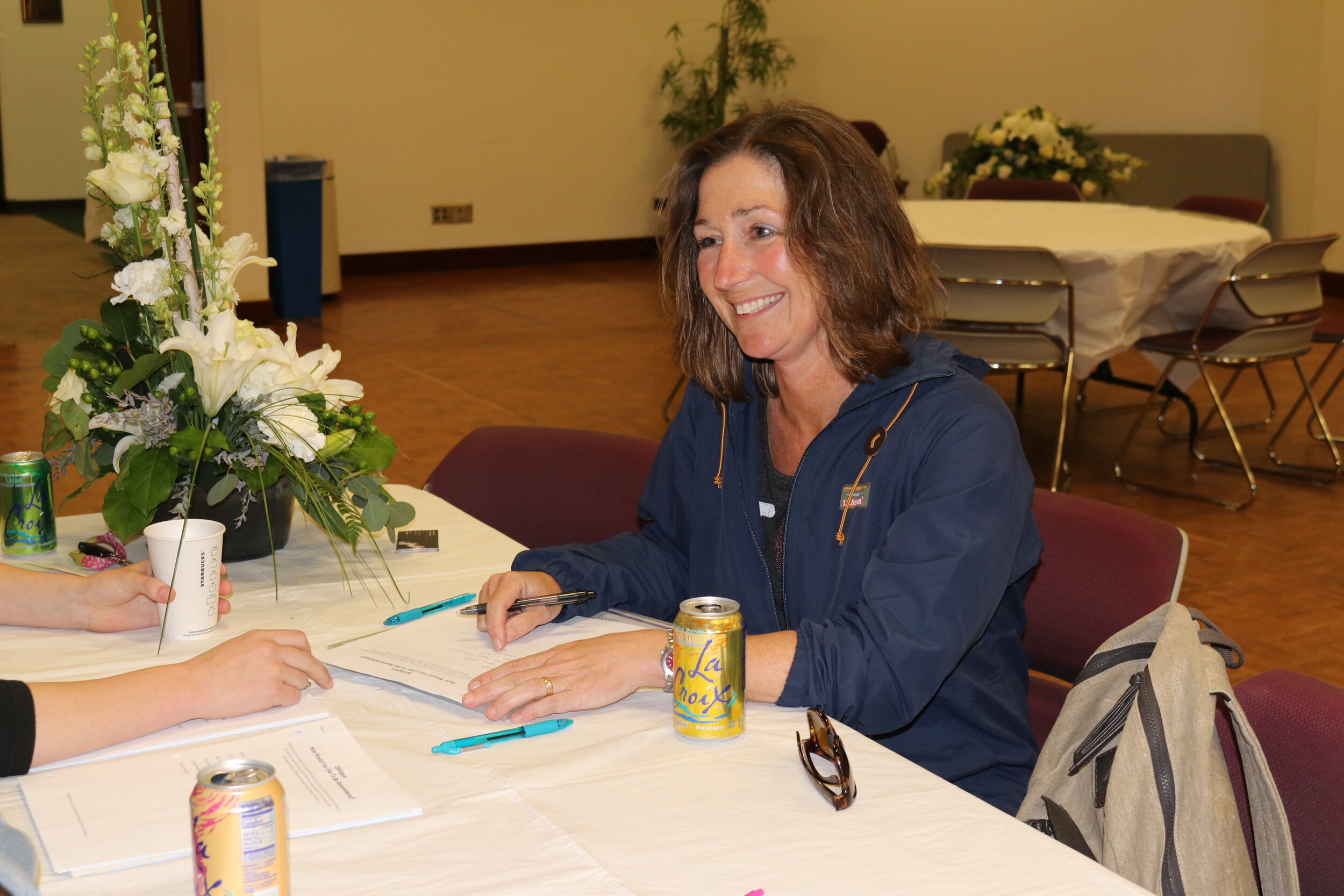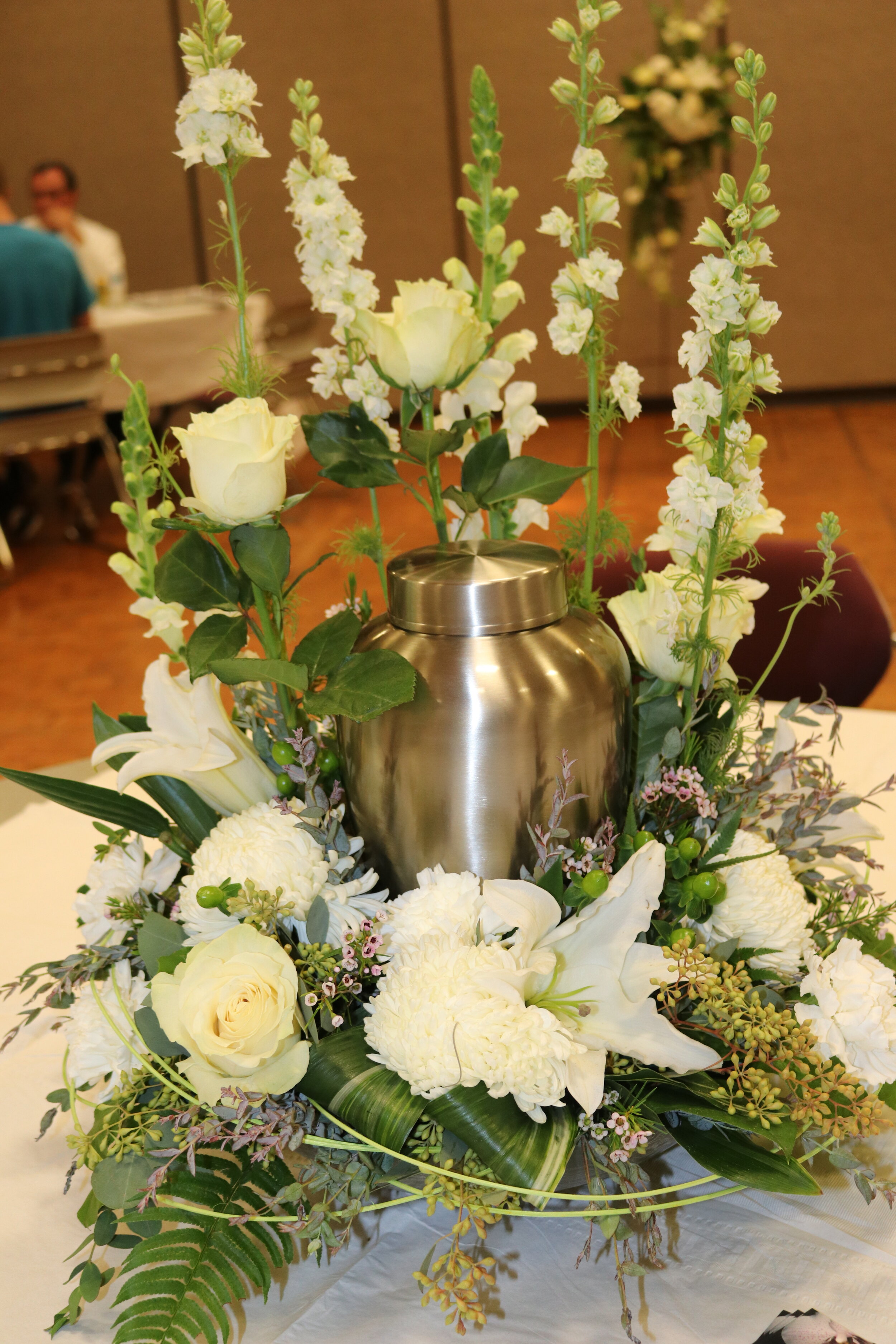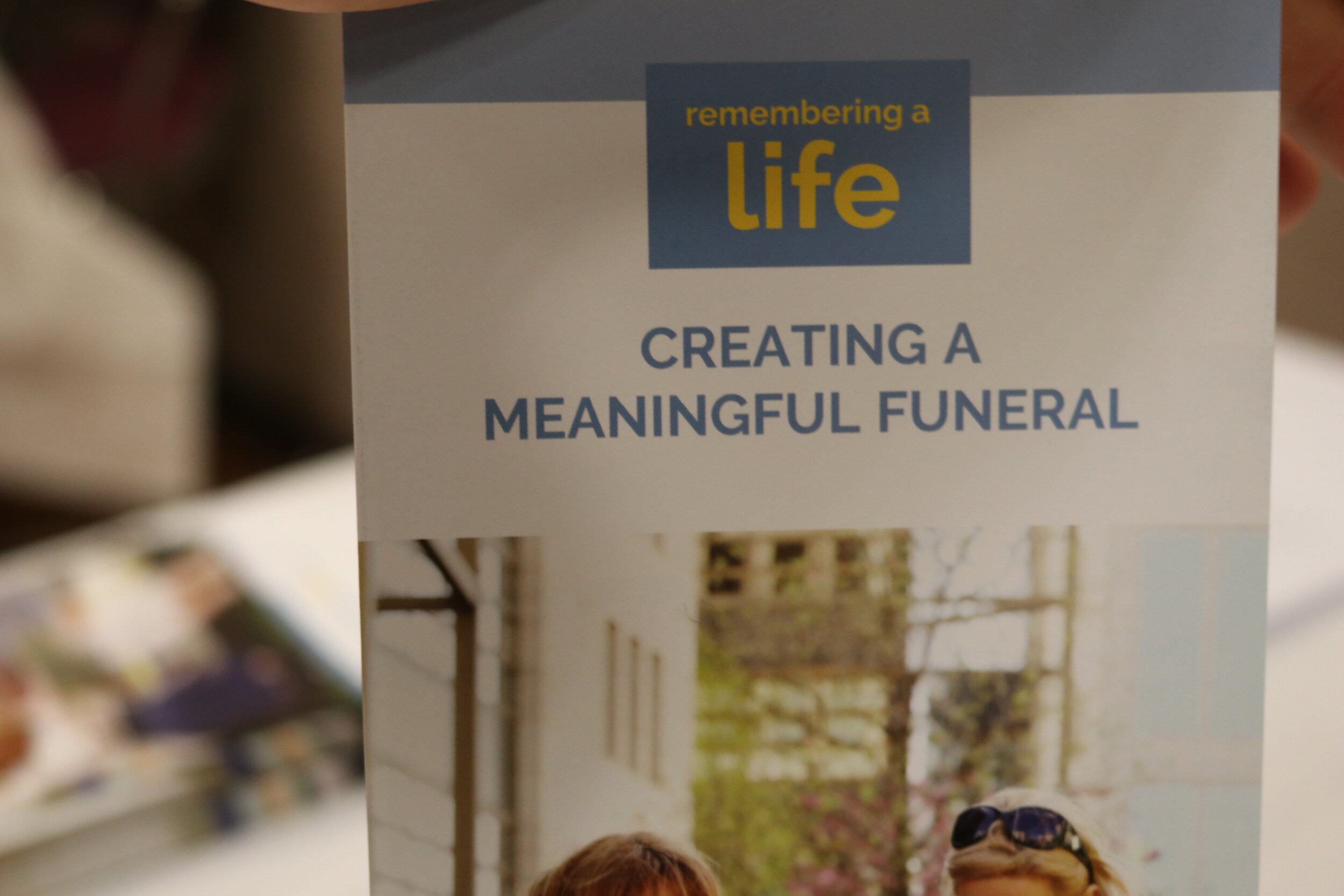How might we improve literacy skills in first and second graders?
Open Book Adventures (OBA) is One Stone’s longest-running Project Good program. First and second graders around the Treasure Valley come to One Stone to partner one-on-one with high school student “Adventure Guides” for six weeks of building connections and diving into activities that encourage a love of learning. Young buddies gain a fun and caring near-peer mentor while high school students expand their skills in leadership, problem-solving, communication, and empathy.
Every Monday for six weeks, 31 first and second grade students and 35 high school students came to One Stone headquarters to practice reading and writing, work on their handwriting and storytelling skills, and engage in activities promoting social-emotional growth.
This session's overarching theme centered on the virtues of friendship: "How to Be a Good Friend!" While reading and writing, participants focused on the importance of being kind, helping others, and practicing how to greet those around us – in particular learning to say "hello" in several different languages! Each week, participants read stories focusing on the best parts of friendship, while also building new and memorable relationships with buddies and guides alike.
At the end of the six week session, families gathered to celebrate the hard work and growth of their young learners at Open Book Adventures graduation. Each student received a book to take home and a certificate of accomplishment for completing the program. Guides shared fun memories of their buddies during OBA and wrote letters to wish them well in their future literary adventures!
Outcomes:
Results from pre-and post-OBA reading tests showed, on average, a 76% increase in correct words read per minute from week one to week six.
Parent reflections:
“My son’s reading scores at school have drastically improved, and he no longer needs an aide.”
“I definitely think my son's enjoying himself more and is not as afraid of challenges.”
“My daughter wants to read on her own much more at night – her outlook has improved leaps and bounds!”
“Because of OBA and the student guide she is excited to read and wants to do better to impress her mentor! Thank you!”
Adventure Guide reflections:
“It helped me grow in my empathy as well as teaching reading and writing skills.”
“I learned that coming up with ideas together with your buddy either in reading or writing is very helpful in growing bonds and showing vulnerability.”
“I was very grateful for my buddy's creativity and kooky personality – it made everything super fun!”
“I was inspired by how creative and motivated the little buddies were.”
